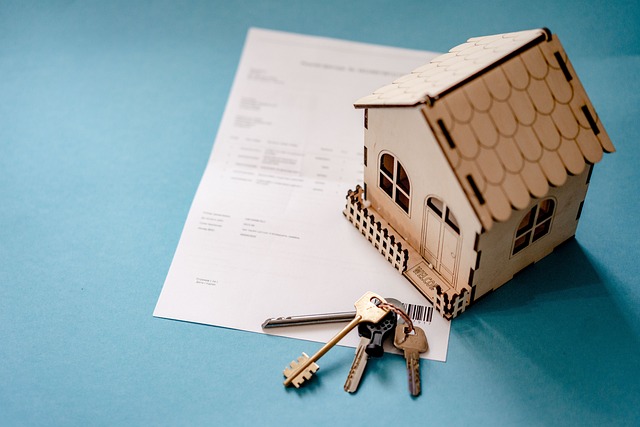Business insurance is a vital safety measure protecting entrepreneurs from financial losses due to unforeseen events, with property and liability coverage as key components. Understanding what business insurance covers—including physical asset protection, legal risks, and potential gaps in policy exclusions—is essential for safeguarding assets and enabling business growth. Tailoring insurance packages to specific company needs, based on activities, risk factors, and asset value, ensures adequate protection at a reasonable cost. Remember, "What Does Business Insurance Cover?" is crucial for entrepreneurs seeking resilience and stability amidst challenges.
“In today’s unpredictable business landscape, safeguarding your assets is paramount. Understanding what does business insurance cover is crucial for any entrepreneur aiming to mitigate risks and ensure stability. This comprehensive guide navigates the essentials of business insurance for property and liability, demystifying essential coverage options. From property insurance guarding physical assets to liability coverage shielding against legal repercussions, we explore common exclusions and various policy types. Learn how to select the ideal insurance package tailored to your business needs.”
Understanding the Basics of Business Insurance

Business insurance is a safety net that protects your company from financial losses due to unforeseen events, such as property damage, liability claims, or even legal issues. Understanding what business insurance covers is essential for any entrepreneur. At its core, business insurance is designed to safeguard your assets and provide financial compensation in case of unforeseen circumstances. This includes property coverage, which protects physical assets like buildings, equipment, and inventory from damages or theft.
Liability insurance is another critical component, shielding your business from claims related to injuries on your premises or damage caused by your products or services. By having the right insurance policies in place, you ensure that your business can navigate these challenges with financial stability, allowing for continuous operations and growth.
Property Insurance: Protecting Your Physical Assets

Business insurance is a safety net that protects against financial loss, but did you know it comes in various forms tailored to specific business needs? One crucial component is property insurance, designed to safeguard your physical assets—be it a brick-and-mortar store, an office space, or industrial equipment. This coverage steps in when damage occurs due to events like fires, storms, theft, or vandalism, ensuring you can replace or repair these assets and continue operating smoothly.
Understanding what does business insurance cover is essential for any entrepreneur. Property insurance typically includes building coverage, which compensates for repairs or reconstruction if your structure sustains damage. Additionally, it may include coverage for personal property inside the premises, such as inventory, furniture, and equipment, protecting them against similar risks. By insuring these aspects, businesses can mitigate significant financial losses and quickly recover from unforeseen circumstances.
Liability Coverage: Shielding Against Legal Claims

Liability coverage is a critical component of any comprehensive business insurance policy, offering protection against potential legal claims and financial losses. This type of coverage shields businesses from expenses arising from accidents, injuries, or harm caused to third parties on their premises or due to their products or services. It includes various aspects such as medical costs for injured parties, legal fees incurred during defense against lawsuits, and compensation for any damages awarded.
Understanding what does business insurance cover in terms of liability is essential for every business owner. By ensuring adequate liability coverage, businesses can safeguard themselves from significant financial setbacks that might result from unforeseen events. This protection provides peace of mind, allowing entrepreneurs to focus on growth and development while knowing their operations are shielded against potential legal risks.
Common Exclusions and What They Mean

Business insurance for property and liability is designed to protect your assets and shield your company from financial losses, but it’s crucial to understand what’s covered and what isn’t. Policyholders often assume their business insurance will cater to every eventuality, yet numerous exclusions exist that can leave gaping holes in coverage. These exclusions vary across different insurers and policy types, so reading the fine print is essential.
Common exclusions include damage caused by acts of terrorism, war, or natural disasters like earthquakes and floods, unless specifically added as riders. Additionally, liability insurance typically excludes injuries or property damage intentionally caused by the insured or their employees. Other exclusions may cover only specific types of business activities or have limitations on the value of personal property insured. Understanding these exclusions empowers businesses to make informed decisions when choosing a policy that aligns with their unique needs, ensuring they’re not left vulnerable in the event of unforeseen events.
Types of Policies and Their Benefits

Business insurance for property and liability covers a wide range of risks that businesses face daily. Understanding the types of policies available is crucial when protecting your business assets and financial stability. One of the primary categories, property insurance, safeguards your physical assets such as buildings, inventory, and equipment from perils like fire, theft, or natural disasters. This type of coverage ensures you can recover and continue operations after a loss.
Liability insurance, on the other hand, protects your business against claims arising from injuries to third parties or property damage they sustain on your premises. It covers legal fees, settlements, and judgments resulting from accidents or incidents related to your business activities. By having these policies in place, you can safeguard your business against potential financial ruin and focus on growth and success.
How to Choose the Right Insurance Package for Your Business

Selecting the ideal business insurance package involves understanding what does business insurance cover and aligning it with your specific needs. Start by evaluating the type of business activities your company engages in and potential risks involved. Consider factors such as location, industry regulations, and the value of your assets. For instance, a manufacturing business may require comprehensive coverage for equipment failure and worker’s compensation, while a service-based company might focus on professional liability to protect against negligence claims.
Next, assess the scale and scope of potential losses. What Does Business Insurance Cover can include property damage, legal fees, medical expenses, and business interruption. Evaluate your financial stability and determine the level of risk you’re willing to assume. Consider comparing quotes from multiple insurers who specialize in your industry, allowing you to make an informed decision that offers adequate protection at a reasonable cost.
